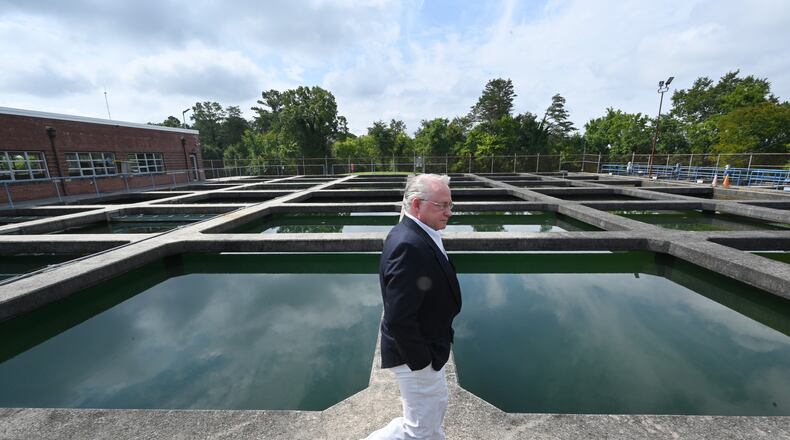Georgia will receive more than $54 million to clean up drinking water supplies in communities around the state that have been polluted by toxic “forever chemicals,” federal environmental officials announced this week.
The money was allocated to the state by the federal Environmental Protection Agency (EPA) and comes from the Bipartisan Infrastructure Law passed by Congress and signed by President Biden in 2021. The new funding is part of a larger effort by the Biden administration to safeguard the country’s water supplies and better understand the health and environmental threats posed by forever chemicals.
The chemicals, also known as PFAS — short for polyfluoroalkyl and perfluoroalkyl substances — have been used for years in a range of everyday products, from nonstick pans and clothing to carpets and food wrappers. Forever chemicals get their name from their resistance to heat, water, oils and breakdown in nature. Removing the chemicals from drinking water is difficult, energy intensive and extraordinarily expensive.
Credit: HYOSUB SHIN / AJC
Credit: HYOSUB SHIN / AJC
Meanwhile, new research has linked PFAS to an increasing number of serious health conditions, including cancers, immune system suppression, elevated cholesterol and decreased infant and fetal growth.
In a release about the announcement, EPA administrator Michael Regan said the funding shows the administration’s commitment to ensuring water supplies around the country are safe.
“Too many American communities, especially those that are small, rural, or underserved, are suffering from exposure to PFAS and other harmful contaminants in their drinking water,” Regan said in a statement. “Thanks to President Biden’s leadership, we are investing in America and providing unprecedented resources to strengthen our nation’s water infrastructure while safeguarding people’s health and boosting local economies.”
The EPA said the money would be made available to communities through grants managed by the agency’s Emerging Contaminants in Small or Disadvantaged Communities (EC-SDC) Grant Program. In Georgia, the state’s Environmental Finance Authority will administer the grants.
In the coming weeks, the EPA is expected to propose new national drinking water standards for perfluorooctane sulfonic acid (PFOS) and perfluorooctanoic acid (PFOA), the two most-studied “forever chemicals” linked to a host of health conditions. Manufacturers have phased out those two chemicals, but decades of use mean they persist in the environment.
In the meantime, several Georgia towns and cities are already grappling with forever chemical pollution.
As The Atlanta Journal-Constitution reported last year, PFAS detected in the rivers that supply drinking water to Rome have triggered lawsuits and spurred costly water system upgrades, sending customers’ water bills soaring.
Residents of Rome and the city itself are suing chemical companies, carpet manufacturers and Dalton’s water utility, alleging that years of PFAS use by the flooring industry upstream has contaminated one of the two rivers that supply the city’s drinking water. One of those cases is expected to go to trial later this year.
Summerville, a small town in nearby Chattooga County, has also had to implement expensive upgrades to its water system to remove PFAS.
It’s unlikely that the new federal funding is enough to address all of the PFAS pollution in Georgia’s drinking water is unclear. In Rome alone, the cost of building a new reverse-osmosis water treatment plant to remove chemicals from the city’s water supply, is expected to cost roughly $100 million.
About the Author
Keep Reading
The Latest
Featured



